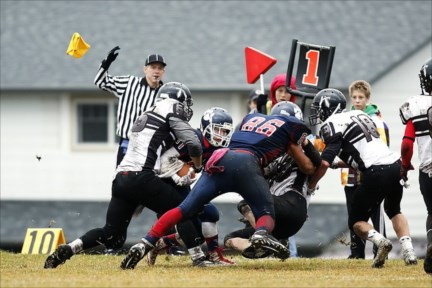
The latest insurance disciplinary action report from the New York State Department of Financial Services is out. As usual, it contains interesting information about what DFS is focusing its enforcement efforts on. Here are some raw numbers:
- Total number of reported disciplinary actions: 27.
- Total number of actions against carriers: 1 ($577,250 fine against a life insurance carrier for disclosure failures.)
- Total number of actions against agents and brokers: 23.
- Total number of actions against other licensees: 3 (an adjuster, a life settlement broker, and a title insurance agent.)
- Total number of actions against NY licensees: 10.
- Total number of actions against out-of-state licensees: 16 in 10 states.
- Number of licenses revoked: 1.
- Number of non-carrier licensee fines: 26.
- Average fine: $2,820.
- Median fine (half were above, half were below): $1,500.
- Most frequent fine: $750.
- Number of agents terminated by carriers for cause: 5.
NOTE: New York Insurance Law Section 2112 requires carriers to report to DFS when they terminate agents for cause. Failure to do so will result in a fine or license suspension or revocation.
A few notes about these actions:
- 15 of the fines against licensees other than carriers were for not reporting disciplinary actions taken by other states. These actions must be reported within 30 days and on license applications. They amounted to 23 actions taken by 17 states.
- Two of the fines were for not reporting criminal proceedings at the time and/or on license applications.
- One individual applied for a new agent’s license without stating on it that DFS had fined him less than a year before. Perhaps he thought they would forget.
- Three individuals were fined for inadequate response or no responses to DFS letters. Ignoring letters from DFS is a very poor idea.
- Two life insurance agents in different parts of the state submitted applications with signature problems.
- One submitted three applications “without authentic insureds’ signatures.”
- The other forged her ex-husband’s signature on an application for insurance on his life without his knowledge or consent. She also may have indicated that they were still married.
- A captive agent applied for insurance for five different people without telling them.
- A captive life agent accepted commissions for acting as a life agent when he did not have a license.
- A Florida agent:
- Did not report an action taken against him by the Florida Office of Insurance Regulation.
- Used an unapproved agency name for almost two years.
- Referred to carriers on his website without providing their full names and home office locations.
- A captive agent didn’t catch his employees making up drivers to put on auto insurance applications.
Lastly, to give you a sense of what it takes to lose your license, DFS determined that the agent whose license was revoked:
- Submitted to his captive carrier photos of properties supposedly taken when he inspected them. Actually, they were photos he found online.
- Made up bank routing and account numbers to make it look like the insureds had made direct premium payments to the carrier.
- Knowingly allowed his employees to sell people policies that did not insure against their risks.
- Stored clients’ personal information at his agency without implementing the privacy and cybersecurity safeguards the carrier required.
- Broke his 2014 promise to DFS to keep his employees from submitting auto insurance applications to the carrier with information the employees knew was false.
- Got into an auto accident while driving his own uninsured car with a car insured by another carrier he represented at the time. In an attempt to cover his tracks, he retroactively added himself and his car to one of his customers’ policies and didn’t tell them.
We at Big I New York would like to caution you against following his example.
These are certainly not all the infractions for which producers can be punished, but this list (and those for prior months linked on the DFS website) should give you an idea of what the department focuses on. The lessons:
- If you get in trouble in this state or any other state where you’re licensed, ‘fess up.
- Don’t play games with applications.
- Monitor your employees’ activities.
- Get your agency’s name approved if you haven’t already.
- Don’t let your license lapse.
- Follow the advertising law about mentioning your carriers.
- If you receive an investigatory letter from DFS, for the love of all that is holy answer it.
Above all, strive to never have your agency’s name show up on one of these reports.